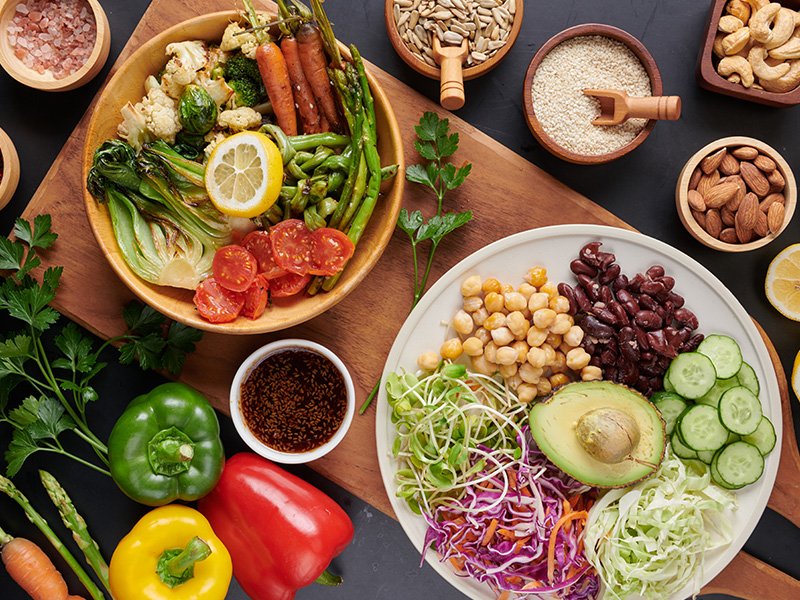Diet Tips for Kidney Health
According to Dr. Ravi Bhadania, a diet that is good for the kidneys should be low in sodium, cholesterol, and fat and high in fruits, vegetables, whole grains, low-fat dairy, and lean meats (such as seafood, poultry, eggs, legumes, nuts, seeds, and soy products). He continues that individuals who have previously received a Chronic Kidney Disease(CKD) diagnosis may also need to restrict a few other nutrients and maintain a kidney patient’s diet.
Here are some dietary changes you can make to keep your kidneys healthy.
- Portioning your food: Ravi Bhadania advises applying a different approach to every meal as a rule: Half of your plate should be composed of fruits and vegetables, followed by one-fourth of lean protein and one-fourth of entire grains.
- Reduce your salt consumption: Sodium can be found in many unexpected areas, notably packaged meals like soups and bread. Limiting your sodium consumption can help you maintain healthy blood pressure levels.
- Beware of protein: When you consume protein, your body creates waste that your kidneys filter. Although a balanced diet should contain enough protein, overeating protein might strain your kidneys. If you already have CKD, your doctor will probably advise a lower-protein diet, even though more research is needed to determine the impact of a high-protein diet on overall kidney function.
- Select complex carbohydrates over simple ones: Your body uses carbohydrates as its primary energy source, and the fiber-rich carbohydrates found in fresh foods support gastrointestinal and heart health and regular blood sugar levels. On the other hand, simple carbohydrates can cause a blood sugar spike and raise the risk of obesity, type 2 diabetes, and heart disease. Examples include added sugars in desserts, sweetened beverages, and many packaged foods.
- Avoid trans-fat and limit saturated fats: Saturated and trans-fat-rich diets raise the risk of heart disease, and kidney damage directly results from heart disease. As the heart continuously pumps blood throughout the body and the kidneys always filter the blood to remove waste materials and extra fluid from the body, heart health, and kidney health are intertwined.
Can you get assistance developing a customized eating plan that is good for your kidneys?
Ask your doctor to refer you to a dietician (someone with thorough training in diet and nutrition to know which foods are suitable for persons with kidney disease) (someone with special training in diet and nutrition to know which foods are ideal for people with kidney disease). Your nutritionist will assist you in developing a kidney-friendly diet that incorporates the foods.
The ideal kidney-friendly diet can be created by talking to a nutritionist about the foods you like and any dietary needs (for example, if you are vegetarian or have food allergies). Remember that even diets (such as the ketogenic, Mediterranean, and vegan diets) that may be healthy for some people are not always safe for those with kidney disease. Before changing your daily intake of foods or nutrients, always see a dietician. A dietitian is an ideal individual to assist you in developing a meal plan that safeguards your kidneys and maintains you as healthy as possible.
It’s crucial to follow a kidney-friendly -diet to slow the progression of renal disease. Foods heavy in potassium, salt, and phosphorus should be avoided unless your doctor advises you to do it differently. Dr. Ravi Bhadania is the best nephrologist and kidney illness medical professional in Ahmedabad! He is accessible at Alfa Kidney Care Hospital.
